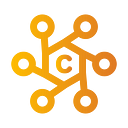Exploring New Opportunities in Cardano Ecosystem with the Social Networking DID Platform - Cardano Connect(CNS)
Cardano Connect (CNS) is a social networking platform built on the Cardano network, allowing users to create and manage their social profiles directly on Cardano, using .ada domain names as their social identity portals.
This platform enables users to find friends, participate in events, and expand their trustworthy networks.
Additionally, CNS issues achievement certificates that are decentralized and securely stored on the blockchain, enhancing data storage efficiency. Product-wise, CNS acts as a social business card on Cardano, similar to the Ethereum Name Service (ENS) but tailored for social interactions.
The CNS platform includes three built-in applications:
1) CNS Domain Registration: The registration process is entirely decentralized, with all CNS domain registration records stored on a blockchain registry. These domains are unique NFTs guaranteed by Plutus — a type-function language based on Haskell concepts used for complex transactions on Cardano’s settlement layer, requiring formal verification for high security. With a new data architecture, each UTxO can hold over 4,000 minting records, and with further registration splitting methods, the CNS V1 version can support over a million registrations. These technological and innovative solutions are inspiring for the Cardano blockchain, and the team plans to open-source these advancements to contribute to the ecosystem’s development.
2) CNS Auction: Rare and specially significant CNS domains are reserved for auction, with the process entirely on-chain and secured by Plutus scripts. This fully decentralized auction process ensures that even the CNS team cannot access funds locked in the auction, guaranteeing asset security for bidders.
3) CNS User Records: All user records, including virtual domains and social profiles, are protected by a so-called token gate system to secure user data, where only the record owners (the CNS NFT holders) can edit these records.
State of the Cardano Ecosystem
CNS has received seed funding from Emurgo, one of the three organizations forming the Cardano ecosystem, alongside the Cardano Foundation and Input Output HK (IOHK). Emurgo drives the commercial adoption of Cardano and enhances its ecosystem’s visibility.
Despite the market cycles, Cardano’s market capitalization remains in the top ten, but its ecosystem development remains somewhat mysterious to many. While $ADA’s price trends have strong correlations with major cryptocurrencies like BTC and ETH, the excitement around BRC-20 tokens and BTC Layer2 development contrasts with Cardano’s quieter ecosystem. Ethereum’s ecosystem, in comparison, remains at the forefront.
Recent data from Cexplorer.io shows about 100,000 active accounts per Epoch (a five-day period on Cardano), with a peak at 267,000, and monthly active accounts around 520,000, peaking at 1,250,000. In contrast, Ethereum, Binance Chain, and Zksync host 4,512, 5,322, and 231 Dapps, respectively, while Cardano has only 55 Dapps listed. The scarcity of Dapps limits engagement opportunities and hinders the formation of an effective positive feedback loop within the ecosystem.
Rewinding back to seven years ago, in September 2017, Cardano was officially launched. Its founder, Charles Hoskinson, who is also a co-founder of Ethereum, previously co-founded and served as the acting CEO of BitShares, sharing entrepreneurial ventures with BM and Vitalik. His technical expertise and entrepreneurial background remain highly competitive even today. However, at that time, the industry’s foundation was quite fragile, with very few practitioners, while the whirlwind of the internet was sweeping across the globe.
Now, with the SEC having approved the BTC ETF and the price of BTC surpassing its previous high of $69,000, along with macroeconomic expectations of interest rate cuts, over-the-counter funds have also opted to allocate to cryptocurrencies as risk assets. Coupled with the Bitcoin halving cycle, it is evident that we are currently in a bull market cycle, with abundant liquidity and risk assets being highly favored.
The scale of the Cardano ecosystem, when compared to that of BTC and ETH, is akin to the disparity between the capital volumes of BTC and traditional finance a decade ago; they are simply not on the same level. Despite this, ADA’s market capitalization remains at a high level. ADA holders, faced with the bull market cycle, seem unmoved and have not liquidated their ADA tokens or exchanged them for the more deterministic and relatively more stable BTC or ETH. The flow of funds within the ecosystem does not show a clear direction. As a public chain with a POS consensus, the staking ratio of the Cardano network is as high as 62%.
Cardano Connect (CNS) Airdrop Plan and Outlook
Can CNS leverage ADA’s staking ratio and attract more funds to remain within the Cardano ecosystem? CNS’s airdrop plan targets testnet users, ADA stakers, CNS domain purchasers, and those who invite others to the platform, rewarding engagement and contributions to the ecosystem.
The success of such airdrop mechanisms, exemplified by Blur, lies in its ability to quickly gain exposure and start product and marketing initiatives, as well as setting clear expectations for airdrops, thereby attracting and retaining interest.
MerlinChain demonstrated the potential of this approach by achieving a staking volume of $4 billion within two months of launch, benefiting its ecosystem significantly.
With strong institutional backing and official support, CNS has the potential to not only offer a lucrative investment return but also break new ground for the Cardano ecosystem, securing its position in the expanding cryptocurrency market value landscape.
